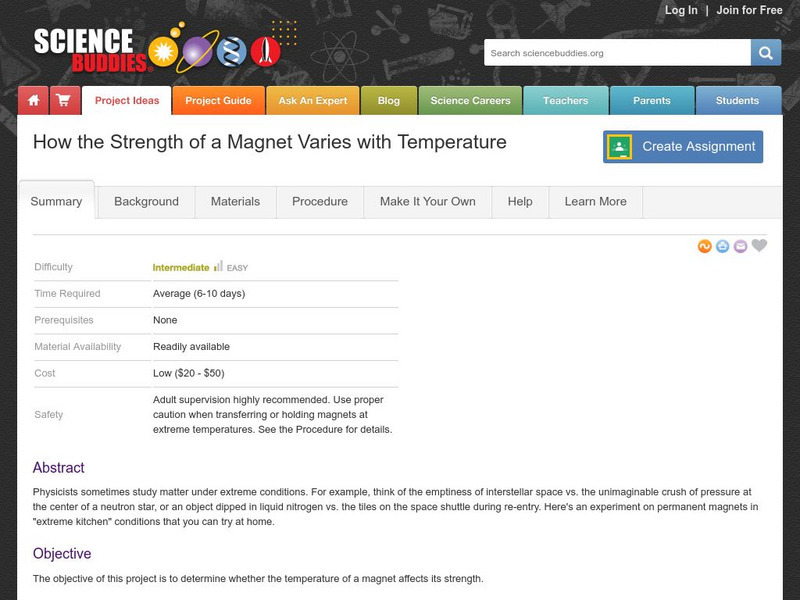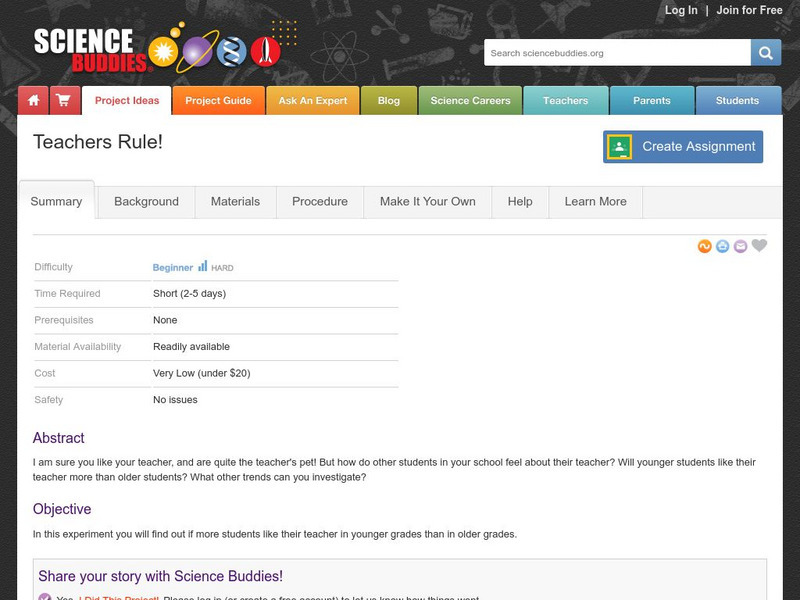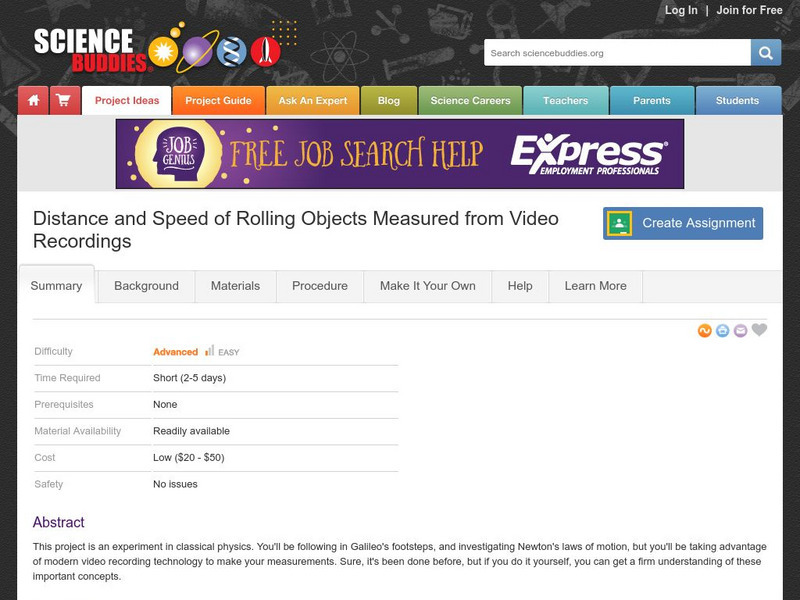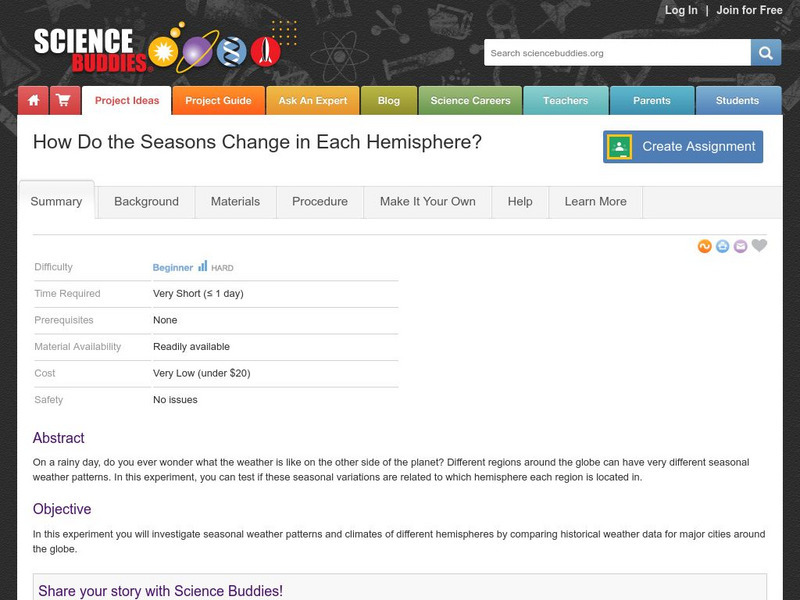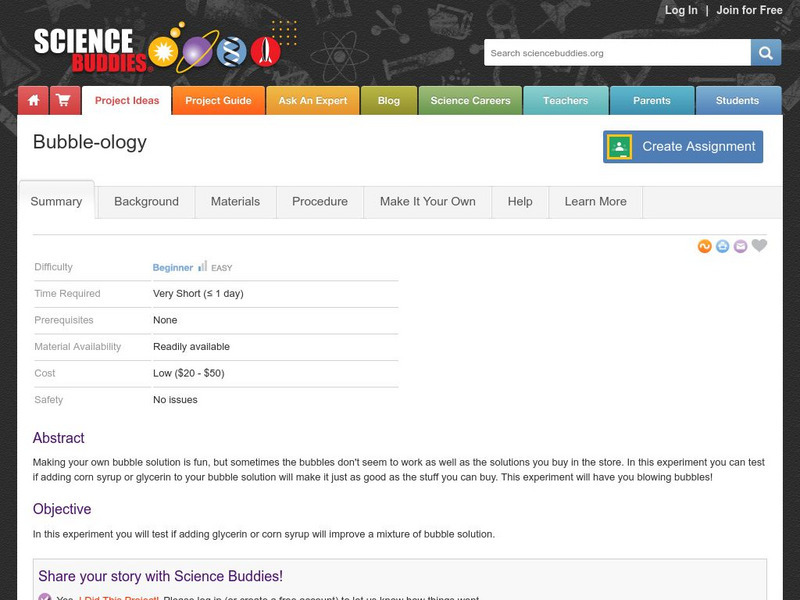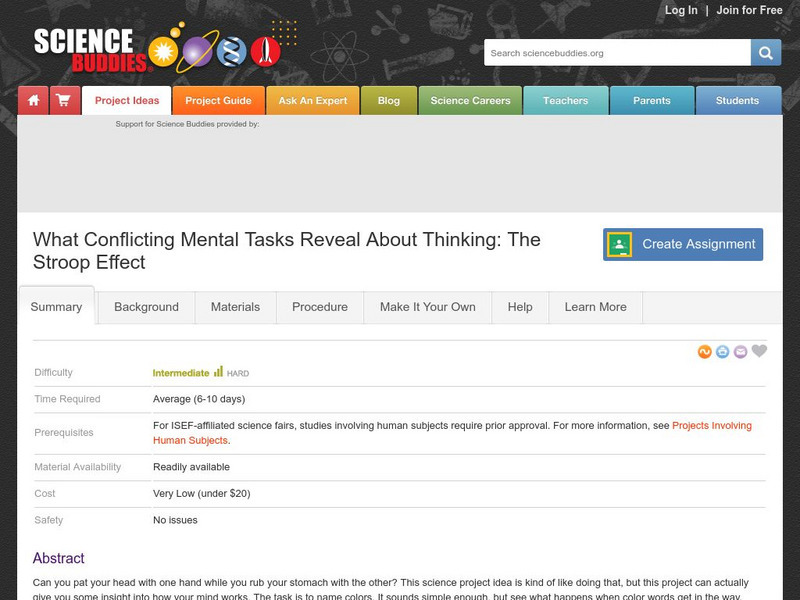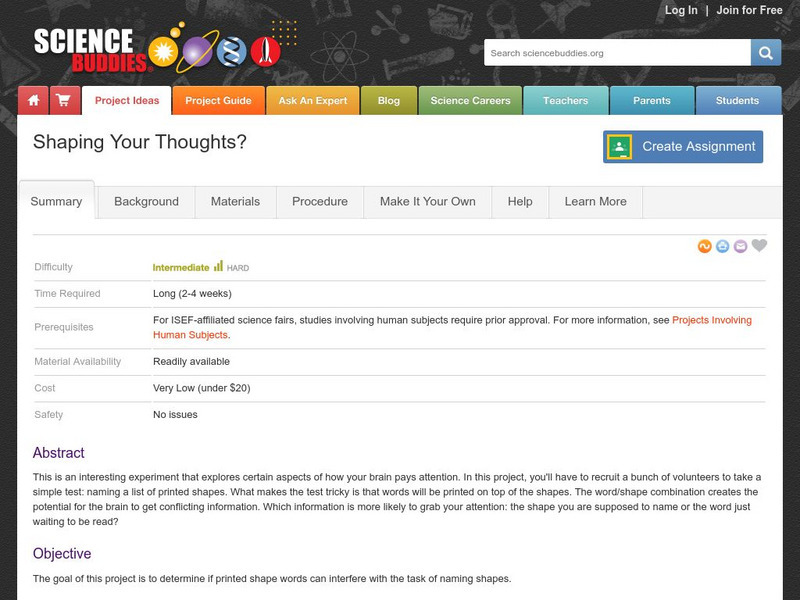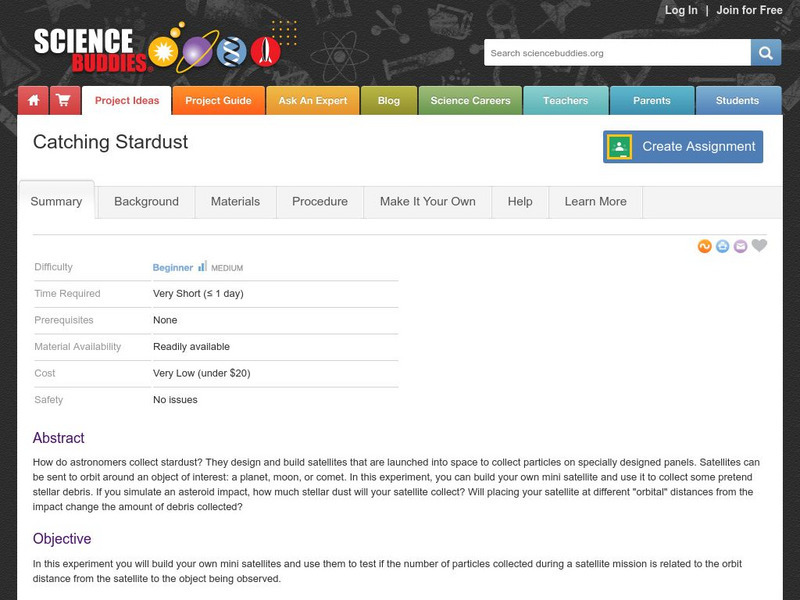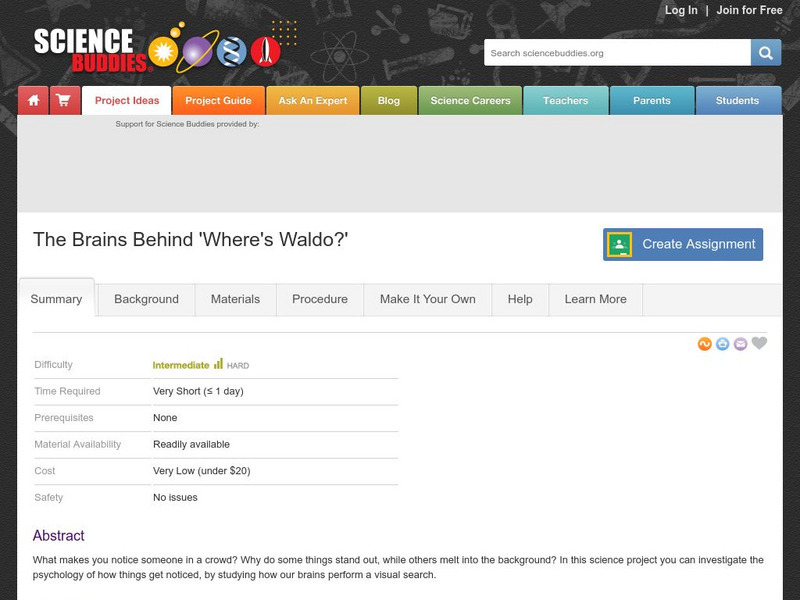Science Buddies
Science Buddies: How the Strength of a Magnet Varies With Temperature
Physicists sometimes study matter under extreme conditions. For example, think of the emptiness of interstellar space vs. the unimaginable crush of pressure at the center of a neutron star, or an object dipped in liquid nitrogen vs. the...
Science Buddies
Science Buddies: Teachers Rule!
Most students like their teachers. However, they may not always say so. Peer pressure may keep a student from expressing how they really feel. In this experiment you will find out if more students like their teacher in younger grades...
Science Buddies
Science Buddies: Distance and Constant Acceleration
This project is an experiment in classical physics. You'll be following in Galileo's footsteps, and investigating Newton's laws of motion, using a metronome as your timing device. This resource will help you get a firm understanding of...
Science Buddies
Science Buddies: Distance and Speed of Rolling Objects
This project is an experiment in classical physics. You'll be following in Galileo's footsteps, and investigating Newton's laws of motion, but you'll be taking advantage of modern video recording technology to make your measurements. The...
Science Buddies
Science Buddies: How Do the Seasons Change in Each Hemisphere?
On a rainy day, do you ever wonder what the weather is like on the other side of the planet? Different regions around the globe can have very different seasonal weather patterns. In this experiment, you can test if these seasonal...
Science Buddies
Science Buddies: How Does a Wind Meter Work?
On a windy day it is hard to keep your hat on. The power of the wind can even be strong enough to power large wind turbines to make electricity. In this experiment, find out how you can make your own instrument to measure the speed and...
Science Buddies
Science Buddies: How Many Numbers Can You Remember?
Most people don't even remember phone numbers anymore, and instead program them into their phones. There is a limit to the number of numbers, or digits, that most people can remember. Try this experiment to test your digit span, the...
Science Buddies
Science Buddies: Buoyancy of Floating Cylinders
This project presents an interesting puzzle. A disk of wood will float face-up, that is, with its circular cross-section parallel to the surface of the water. A long log of wood, however, floats with the circular cross-section...
Science Buddies
Science Buddies: What a Drag!
What makes some objects more streamlined than others? Find out which ordinary objects around your house are made to move smoothly through the water in this easy experiment. Which objects will produce the most drag when pulled through the...
Science Buddies
Science Buddies: Gears Go Round!
Music boxes, bicycles, and clocks all have one thing in common: GEARS. You might say that gears make the world turn, since they are in so many mechanical instruments. How do they work and how do you know which gears to use? Find out in...
Science Buddies
Science Buddies: Rubber Bands for Energy
If you've ever been shot with a rubber band then you know it has energy in it, enough energy to smack you in the arm and cause a sting. How can the energy of a rubber band be put to work? In this experiment you will find out how the...
Science Buddies
Science Buddies: Which Simple Machines Do I Use the Most?
When you think of a machine, you probably think of computers or robots. Try this experiment to see how simple machines are used everyday around your house.
Science Buddies
Science Buddies: Do It Yourself Dna
All living things have DNA inside their cells. In this experiment you can make your own DNA extraction kit from household chemicals and use it to extract DNA from strawberries.
Science Buddies
Science Buddies: What Makes a Dna Fingerprint Unique?
Do you like solving mysteries? In this experiment, you can find out how a DNA fingerprint can help you figure out whodunit. The answer might just be in the "sequence" of events.
Science Buddies
Science Buddies: A Magnetic Primer Designer
How do scientists "copy" DNA? They use a process called the Polymerase Chain Reaction, or PCR. The key to making this process work is having a primer that will stick to the piece of DNA you want to copy, called a template. In this...
Science Buddies
Science Buddies: The Bouba Kiki Effect
It may be possible for certain symbolic characteristics, like sharpness and roundedness, to cross language barriers. In this experiment you will investigate the Bouba-Kiki Effect to find out if abstract visual properties can be linked to...
Science Buddies
Science Buddies: Bubble Ology
Making your own bubble solution is fun, but sometimes the bubbles don't seem to work as well as the solutions you buy in the store. In this experiment you can test if adding corn syrup or glycerin to your bubble solution will make it...
Science Buddies
Science Buddies: Dog Scents: The Super Nose of Man's Best Friend
Everyone thinks their dog's the best, but in the case of smelling ability, all dogs possess super powers. In fact, a dog's nose can be over a 1,000 times more sensitive than a human's. In this project, learn about smell from a dog's...
Science Buddies
Science Buddies: What Conflicting Mental Tasks Reveal About Thinking
Can you pat your head with one hand while you rub your stomach with the other? This experiment is kind of like that, but it can actually give you some insight into how your mind works. The task is to name colors. It sounds simple enough,...
Science Buddies
Science Buddies: Shaping Your Thoughts?
This is an experiment that explores certain aspects of how your brain pays attention. In this project, you'll have to recruit volunteers to take a simple test: naming a list of printed shapes. What makes the test tricky is that words...
Science Buddies
Science Buddies: Warped Words and the Stroop Effect
The Stroop effect describes an experiment about the time it takes to name the color of printed words. When you try to name the color in which color words are printed, it takes longer when the color word differs from the ink color than...
Science Buddies
Science Buddies: Catching Stardust
How do astronomers collect stardust? They design and build satellites that are launched into space to collect particles on specially designed panels. Satellites can be sent to orbit around an object of interest: a planet, moon, or comet....
Science Buddies
Science Buddies: How Much Do Different Pet Species Eat?
How much food do you think your pet eats compared to other kinds of pets? In this experiment you will compare the food intake of your family pets to find out which pet eats more for its body weight.
Science Buddies
Science Buddies: The Brains Behind 'Where's Waldo?'
What makes you notice someone in a crowd? Why do some things stand out, while others melt into the background? In this experiment you can investigate the psychology of how things get noticed, by studying how our brains perform a visual...
